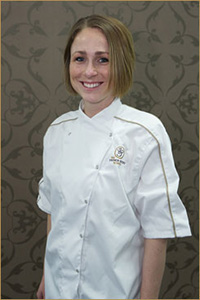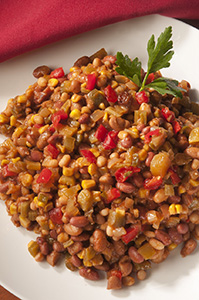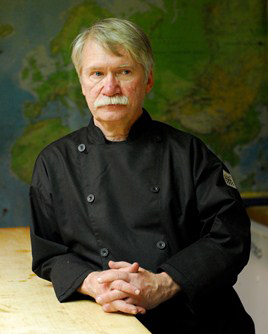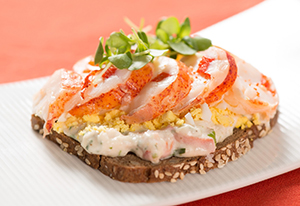Guest Speaker: Pastry Dreams
 Armed with a degree in business, Katie Veile decided not to let her student loans stand in the way of pursuing her lifelong passion at The French Pastry School.
Armed with a degree in business, Katie Veile decided not to let her student loans stand in the way of pursuing her lifelong passion at The French Pastry School.
For the Love of Chocolate Foundation provides scholarships for qualified students in the specialized training of the pastry arts in the full-time programs taught by The French Pastry School of Kennedy-King College at City Colleges of Chicago.
The goal of the scholarships is to encourage and assist aspiring students, career changers and culinary-career professionals to advance their knowledge of the pastry arts. The program is specifically geared toward individuals who are in need of financial assistance. The French Pastry School’s full-time programs not only train students in the art of pastry, but also educate them about the pastry profession.
The school was founded by Chefs Jacquy Pfeiffer and Sébastien Canonne, MOF, in 1995 as a resource for intensive pastry education. Today it is often referred to as the premier pastry school in the world. The French Pastry School offers certificates in Professional Baking and Pastry Arts (24 weeks), Professional Cake Decorating and Baking (16 weeks) and Artisanal Bread Baking (eight weeks).

 Vegetarianism—and its many variations—is a way of life for a growing number of Americans. Students, thus, should learn to prepare vegetarian and vegan dishes that entice and excite even those customers who enjoy meat. To that end, Chef Zonka shares her first-week lesson plan in a vegetarian-cuisine course.
Vegetarianism—and its many variations—is a way of life for a growing number of Americans. Students, thus, should learn to prepare vegetarian and vegan dishes that entice and excite even those customers who enjoy meat. To that end, Chef Zonka shares her first-week lesson plan in a vegetarian-cuisine course. Chef John Zehnder’s newest cookbook includes the most-requested recipes from the most-frequented restaurant in the United States.
Chef John Zehnder’s newest cookbook includes the most-requested recipes from the most-frequented restaurant in the United States. Dr. Mayo continues his discussion of tried-and-true and novel assessment ideas, as well as common methods whose usefulness in your program might be dated. This month he examines evaluating food preparation and dining-room service.
Dr. Mayo continues his discussion of tried-and-true and novel assessment ideas, as well as common methods whose usefulness in your program might be dated. This month he examines evaluating food preparation and dining-room service. For newer culinary-arts teachers, ordering can seem a daunting task. But it’s really quite simple, says Chef Weiner, who suggests three basic ways to order for day-to-day teaching (while taking into consideration two common snags). His chief advice? Under order.
For newer culinary-arts teachers, ordering can seem a daunting task. But it’s really quite simple, says Chef Weiner, who suggests three basic ways to order for day-to-day teaching (while taking into consideration two common snags). His chief advice? Under order. As much as our primary educational mission is to prepare students to be professionally successful in their chosen career, Chef Sorgule asserts our obligation extends far beyond: Educators have a responsibility to help mold good citizens, community leaders and honorable members of society.
As much as our primary educational mission is to prepare students to be professionally successful in their chosen career, Chef Sorgule asserts our obligation extends far beyond: Educators have a responsibility to help mold good citizens, community leaders and honorable members of society. From recipes to roe, and from properly extracting meat from the shell and paring it with wines, this free online learning course from The Culinary Institute of America is suitable for culinary-arts students in class and as homework.
From recipes to roe, and from properly extracting meat from the shell and paring it with wines, this free online learning course from The Culinary Institute of America is suitable for culinary-arts students in class and as homework.